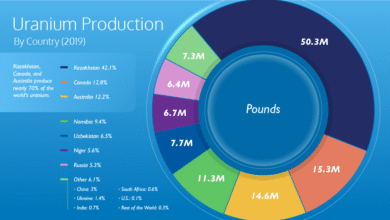Midday Stock Market Movers: Tesla, BioNTech and More

Midday stock market movers are making headlines as investors react to the latest shifts in the financial landscape. Notably, Tesla’s stock has taken a 3% dive following disappointing sales figures across several European markets, sparking concerns over the electric vehicle giant’s growth trajectory. In contrast, BioNTech shares surge impressively by 18% on the news of a lucrative partnership with Bristol Myers Squibb for cancer drug development. Meanwhile, DraftKings experiences a setback with a more than 5% drop in its stock prices after proposed tax increases in Illinois raise challenges for sports betting companies. Additionally, Steel Dynamics, alongside other steel stocks, sees a price hike, fueled by a significant tariff increase on imports that boosts investor confidence in the sector.
As we delve into the midday trading scene, prominent stock market participants are capturing investor attention for various reasons. The electric vehicle sector is faced with fluctuating fortunes, especially with Tesla’s recent struggles that contrast with the promising developments in biotech led by BioNTech’s strong market response. Investors are also closely monitoring advertising shares amid new AI-driven strategies from major companies, which affects the performance of key players like Omnicom Group. Similarly, the sports betting industry is bracing for financial adjustments following regulatory changes that have led to notable declines in stocks like DraftKings. Lastly, the steel industry is witnessing a boom thanks to recent tariff policies, significantly altering the market dynamics and encouraging a fresh look at stocks within this arena.
Midday Stock Market Movers: Tesla, BioNTech, DraftKings, and Steel Dynamics
In midday trading, Tesla’s stock faced a significant setback, dropping by 3% as reports highlighted diminishing sales across several prominent European markets, including Sweden and France. This decline has raised concerns among investors about the company’s ability to maintain its market dominance, especially with the competition in the electric vehicle (EV) sector intensifying. The sluggish sales figures in these regions suggest a potential shift in consumer preferences or increased competition that Tesla must navigate to regain investor confidence.
Conversely, BioNTech shares showcased a remarkable surge, skyrocketing 18% following the announcement of a lucrative partnership with Bristol Myers Squibb to co-develop an experimental cancer drug. This multibillion-dollar deal not only reinforces BioNTech’s position within the biopharmaceutical industry but also underscores the company’s commitment to innovation in cancer treatment. As the biopharma sector continues to attract significant investments, such partnerships might play a pivotal role in driving stock valuations forward.
Advertising Stocks Update: Meta Platforms and Its Impact
Today’s midday trading saw advertising stocks experience notable declines, largely influenced by Meta Platforms’ recent announcement regarding the automation of its advertisements through artificial intelligence. The potential implications of this shift have rattled investors, leading to a drop of 4% in shares of Omnicom Group, with WPP Group and Interpublic also seeing decreases of 2%. The move toward AI automation by major players raises concerns about the future of traditional ad strategies and their effectiveness in reaching target audiences.
Given this backdrop, it’s crucial for investors to closely monitor the performance of advertising stocks as market dynamics evolve. While the integration of artificial intelligence in ad campaigns may streamline operations and reduce costs, it also poses challenges for smaller firms that may lack the resources to adopt similar technologies. As the landscape shifts, stakeholders must weigh the opportunities against the inherent risks presented by such transformative changes.
The Impact of Tariff Increases on Steel Stocks
Steel stocks have rebounded notably following President Trump’s announcement to double tariff rates on imports to 50%. This drastic increase has catalyzed a surge in share prices, with Cleveland-Cliffs spiking by over 24%, while both Nucor and Steel Dynamics enjoyed climbs around 10%. The impact on domestic producers could be profound, potentially leading to increased profit margins as competition from imported steel diminishes.
However, the increased tariffs may also prompt a ripple effect throughout various sectors that rely heavily on steel for production, including automotive and construction. As companies adjust their supply chains and pricing strategies in response to these tariffs, stakeholders must remain vigilant and assess the long-term implications on both the steel industry and its downstream partners.
Sports Betting Stocks Take a Hit After Tax Hike
Midday trading has revealed a notable downturn in online sports betting stocks, fueled by the recent approval of a budget by Illinois lawmakers that included a tax hike for the industry. DraftKings experienced a drop of more than 5%, alongside Flutter Entertainment and Rush Street Interactive, which dipped by more than 3% and 1%, respectively. This swift decline has raised alarms among investors regarding the sustainability of profit margins under the new tax regime.
As the regulatory landscape evolves, the future of sports betting stocks will depend greatly on the ability of companies to adapt to increased taxation while maintaining competitive offerings. Investors need to analyze how these changes might affect overall market growth as they weigh their investment strategies in this rapidly changing sector.
Analyzing Auto Stocks Amid Tariff Woes
The auto industry faced fresh challenges in midday trading as shares of major car manufacturers slipped following President Trump’s tariff increase on steel. General Motors and Ford saw their stocks tumble nearly 5%, while Stellantis saw a decrease of 3.5%. These declines highlight the potential difficulties automakers face in sustaining profitability amidst rising material costs, which could ultimately be passed on to consumers.
Furthermore, the heightened tariff rates may compel automakers to rethink their supply chains and production strategies. As the industry grapples with increased costs and a tightening market, investors must keep a close eye on how these external pressures might shape company performance in the upcoming quarters.
Applied Digital’s Significant Growth Through Strategic Partnerships
In a significant development in the tech sector, Applied Digital has reported a remarkable surge of over 40% in share prices following their announcement of two long-term lease agreements with CoreWeave, a cloud services provider backed by Nvidia. This strategic move not only underscores Applied Digital’s potential for exponential revenue growth—projected at $7 billion over the next 15 years—but also highlights the increasing demand for cloud services and digital infrastructure.
Such partnerships are essential in the fast-evolving tech landscape, where aligning with strong allies can provide a competitive edge in market positioning. As businesses continue to adopt cloud technology for efficiency and scalability, investors may view Applied Digital’s growth trajectory as a harbinger of future expansion within the industry.
The Surge of Blueprint Medicines: Acquisitions and Market Impact
Shares of Blueprint Medicines soared by 26% following the announcement of a $9.5 billion acquisition by Sanofi, showcasing the strong market response to strategic moves within the biopharmaceutical sector. This acquisition, valued at $129 per share, reflects not only the growth potential of Blueprint Medicines but also the increasing interest among larger pharmaceutical companies in expanding their cancer drug portfolios.
Such substantial acquisitions often set a precedent for future mergers and acquisitions in the industry, highlighting the importance of collaboration in bringing innovative treatments to market. Investors should consider how this trend may influence stock valuations across the biopharma landscape as companies strive to secure their competitive positioning.
Tesla’s Market Position: A Shift in Consumer Demand
Tesla’s recent stock decline has raised concerns amongst investors regarding the company’s market position, particularly as sales have weakened in key European markets. The drop in share prices by 3% might indicate a shift in consumer preferences or an increased competitive threat from other electric vehicle manufacturers, prompting a reevaluation of Tesla’s strategies to maintain its leading position in the industry.
While the company’s performance in Norway suggests resilience with a boost from the revamped Model Y, the broader implications of weaker sales could challenge Tesla’s growth narrative in international markets. Investors need to remain vigilant regarding these trends as they assess the viability of Tesla’s long-term growth strategy.
Market Reactions to Steel Tariffs in Midday Trading
The sharp increase in tariffs on imported steel has caused noticeable turmoil in the midday trading session, with steel stocks like Cleveland-Cliffs and Steel Dynamics spiking in response. The 50% tariff rate signifies a substantial protective measure aiming to bolster domestic producers, potentially fostering a more favorable pricing environment for U.S.-based steel manufacturers.
However, the overarching concern remains how these tariffs will impact other industries reliant on steel, particularly the automotive and construction sectors. As companies navigate these changing costs and adjust their pricing strategies, investors are encouraged to analyze the implications thoroughly to make informed decisions moving forward.
Frequently Asked Questions
What are the latest midday stock market movers for Tesla?
Midday trading shows that Tesla stock dropped 3% as sales declined in several European markets including Sweden and France. The decline was attributed to weaker demand, although sales improved in Norway with the new Model Y.
Why did BioNTech shares surge in midday trading?
BioNTech shares surged 18% after the company announced a multibillion-dollar partnership with Bristol Myers Squibb, which includes an upfront payment of $1.5 billion to co-develop an innovative cancer drug.
What factors contributed to the DraftKings stock drop today?
DraftKings stock fell over 5% during midday trading due to Illinois lawmakers passing a budget that included a tax hike on online sports betting, negatively impacting the stock’s performance alongside other sports betting companies.
How did Steel Dynamics perform in midday trading updates?
Steel Dynamics saw a notable increase of 10% in midday trading after President Trump’s announcement of a tariff rate hike on steel imports, reinforcing confidence in U.S. steel stocks.
What is the impact of the advertising stocks update on companies like Omnicom Group?
According to the latest advertising stocks update, shares of Omnicom Group fell 4% as news broke that Meta Platforms plans to automate its ads using artificial intelligence by year-end, creating uncertainty in the advertising sector.
| Company | Stock Movement | Reason for Movement |
|---|---|---|
| Tesla | -3% | Decline in sales across several European markets. |
| Omnicom Group | -4% | Concerns over Meta’s AI ad automation plans. |
| Cleveland-Cliffs | +24% | Rising steel tariffs set by President Trump. |
| Blueprint Medicines | +26% | Acquisition by Sanofi for $9.5 billion. |
| DraftKings | -5% | Tax hike included in Illinois budget affecting sports betting. |
| General Motors | -5% | Impact of doubled tariffs on steel. |
| BioNTech | +18% | Multi-billion dollar deal with Bristol Myers Squibb for cancer drug development. |
| Applied Digital | +40% | Lease agreements with CoreWeave expected to generate $7 billion in revenue. |
Summary
Midday stock market movers included notable fluctuations as Tesla faced a decline of 3% due to lower sales in Europe, while BioNTech surged 18% amidst positive news of a significant partnership. Steel stocks benefitted from an increase in tariffs, leading Cleveland-Cliffs to soar more than 24%. Furthermore, the broader trends in advertising and sports betting stocks reflected the tightening of earnings in response to economic policies, like tax hikes on sports betting in Illinois. Overall, the midday trading cycle reveals a marked differentiation in performance across sectors.



